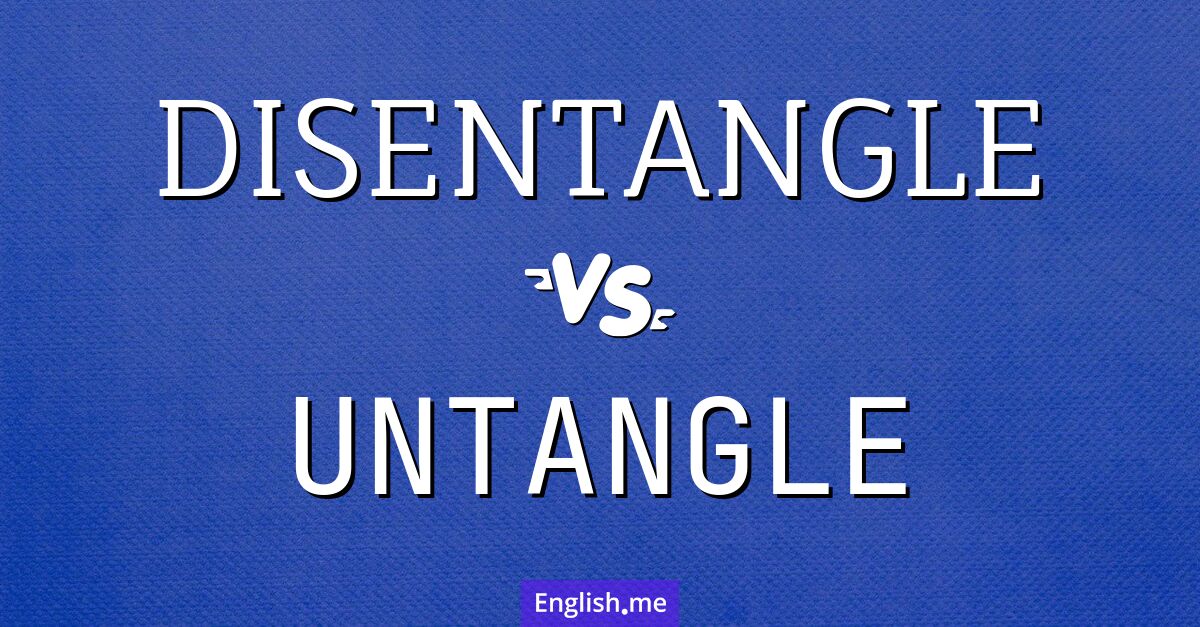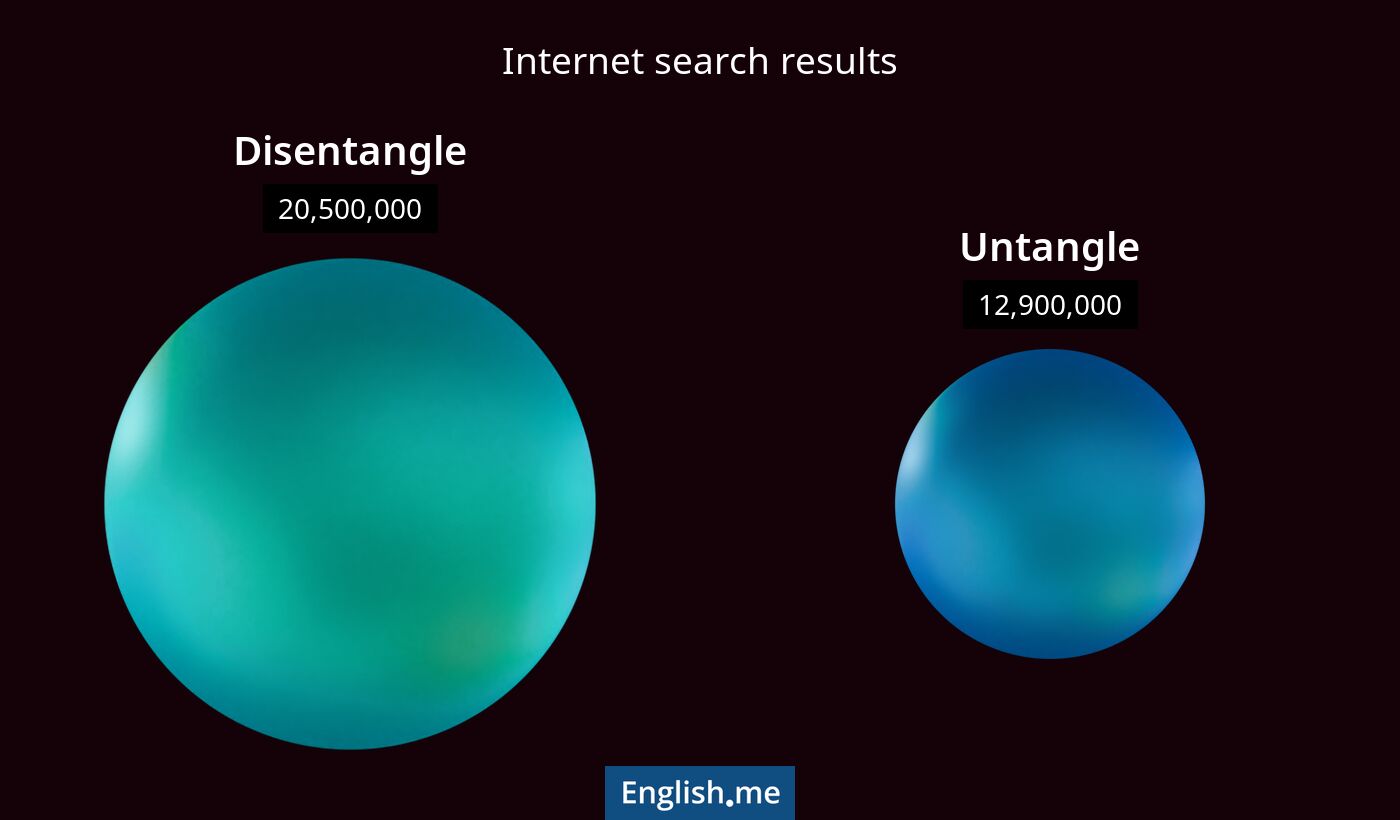"Disentangle" vs. "untangle": same thread, different knots
Reviewed and edited by  Lloyd Cooper 30/12/2024, 12:00
Lloyd Cooper 30/12/2024, 12:00
English.me team member

 What is similar?
What is similar?
Both "disentangle" and "untangle" mean to remove tangles or knots, both literally and figuratively. They refer to the process of making something less complicated or easier to understand by separating intertwined elements.
 What is different?
What is different?
"Disentangle" often implies a more complex or intricate process of separating things that are deeply intertwined or complicated. It is frequently used in more formal or figurative contexts, such as disentangling complex issues or relationships. "Untangle" is commonly used for physical objects and may suggest a simpler or more straightforward process of removing tangles, such as untangling ropes or hair.
 Which one is more common?
Which one is more common?

 Examples of usage
Examples of usage
Disentangle- The historian worked to disentangle the myths from the facts.
- They needed to disentangle themselves from the legal complications.
- She tried to disentangle her thoughts after the confusing lecture.
- He helped untangle the kite string.
- She spent hours trying to untangle her hair after the windy day.
- The IT specialist managed to untangle the wires behind the computer.

 English
English español
español française
française italiano
italiano deutsche
deutsche 日本語
日本語 polski
polski česky
česky svenska
svenska Türkçe
Türkçe Nederlands
Nederlands